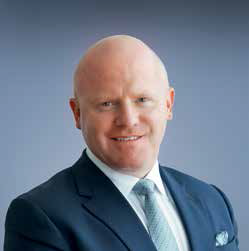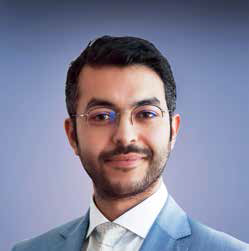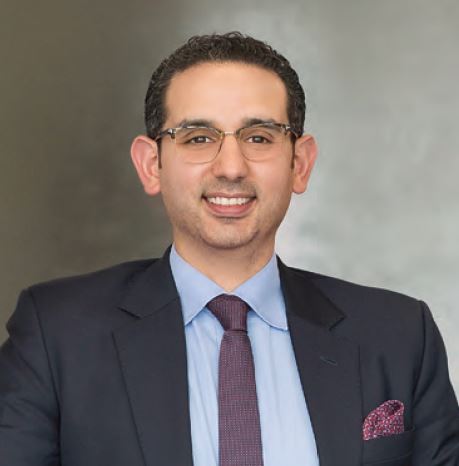

As the hospitality sector across the Middle East accelerates its growth trajectory, funding models are evolving just as rapidly. Traditional bank financing is no longer the only route to realizing large-scale hotel developments.
Spotlight on ESG
Today, with new financing structures paving the way for hotel growth across the region, the rise of ESG-linked instruments, co-investment platforms and renewed private equity interest is reshaping the capital landscape.
Funding structures: a new era
Financing models of the future and their influence on the Middle East’s hospitality and tourism sectors are hot topics at the Future Hospitality Summit, including FHS Saudi Arabia and FHS World. Recently, at FHS Saudi Arabia, global industry leaders shared their insights, expertise and predictions on hospitality funding models. And we are gearing up for much more on the subject at FHS World in Dubai this autumn.
To explore how these shifts are influencing strategy and execution on the ground, I spoke to hospitality and investment experts from Knight Frank and Jones Lang Lasalle, two of the world’s leading real estate consultancies.

chairman of The Bench
organizer of the Future Hospitality Summit
All eyes on alternative financing
During our discussion, they shared their thoughts on the capital pathways that are set to define the next era of regional hotel growth. ESG, the risks and opportunities posed by alternative financing structures, and private equity trends were among the topics explored. Here’s what they had to say.
The global eco-tourism market is projected to grow from USD 270.5 billion in 2025 to USD 551.8 billion by 2035. The leisure and hospitality industry contributes over 8 percent of global greenhouse gas emissions. As a result, the sector faces both environmental and financial opportunities.
Green investments: plenty of potential
Sustainable practices improve operational efficiency, asset resilience and market differentiation. In the GCC, green investments could add USD 2 trillion to regional GDP by 2030, driving demand for green and sustainability-linked bonds. ESG principles are undoubtedly reshaping hotel financing across the Middle East.

WESLEY THOMPSON
Partner and head of ESG
MENA Knight Frank
@knightfrankuae
Co-investment structures offer developers access to broader capital pools and also provide higher returns. These models democratize investment and reduce reliance on traditional banks. However, they can generate more complex operations for hotel operators. Foreign ownership possibilities in Saudi Arabia could benefit from these alternative investment tools, especially in the holy cities. However, the co-investment and alternative financing structures are complex. Therefore, clear governance, a responsibility matrix and alignment of interest are necessary to ensure the sustainability of this model.
New market players
The private equity regional market is proving increasingly attractive to new players outside of the Middle East. It is also growing in appeal to participants who are new to real estate and hospitality asset classes. Strategies focus on development in core established regional markets or income-producing assets with revenue uplift potential. These opportunities can be unlocked through light refurbishment and suitable operational strategy requiring asset management or rebranding. Overall, the increased liquidity of the hospitality asset class will contribute to uplifting supply quality. Additionally, it will consolidate core regional markets.

OUSSAMA EL KADIRI
Partner and head of hospitality, tourism
and leisure advisory services MENA
Knight Frank
@knightfrankuae
Green and sustainability-linked bonds are reshaping hotel financing in the region. This shift is being driven by increasing investor demand for ESG-focused investments and government sustainability initiatives. These instruments are likely to lead to more environmentally friendly hotel designs. Moreover, they are expected to improve operational efficiency and create greater transparency in sustainability reporting. They may also spur innovation in the sector and create a distinct market for sustainable hotels.
Challenges include a lack of standardized criteria and regulatory enforcement. The need for increased expertise and varying regional market maturity can also present problems. On the flipside though, there are undoubtedly opportunities. These include a competitive advantage whereby hotels financed through green bonds or sustainability-linked instruments may attract environmentally conscious travelers and corporate clients. Additionally, green bonds and sustainability-linked loans may offer more favorable terms or lower interest rates. This can act as an incentive for developers to pursue sustainable projects. Overall, these financing tools are expected to significantly influence hotel development in the Middle East. More broadly, the shift aligns the sector with global ESG trends and creates new opportunities for stakeholders.
Weighing the opportunities and risks
Investment platforms and alternative financing structures offer hotel operators, developers and investors new opportunities. These include broader access to capital, increased flexibility, faster fundraising and global investor reach. However, they can also present risks. These include regulatory uncertainty, higher cost of capital, reputational risks and complexity in managing diverse investor expectations. Opportunities include diversifying the traditional alliances. Importantly, some of these can be strategic if the capital owners have operating or brand platforms. To navigate these models effectively, operators and developers should conduct thorough due diligence and ensure they understand all terms and regulatory compliance.
Clear investor communication strategies are another requirement. Additionally, they should carefully assess long-term implications and costs compared to traditional financing methods.
Navigating regional dynamics
When it comes to private equity, firms typically favor mature, developed hotel markets, targeting value-add opportunities in older properties ripe for refurbishment or rebranding. They focus on active
asset management and operational improvements to drive returns. By doing so, they are not relying solely on market growth. Private equity is less active in developing markets still driven by new development trends. Markets with higher liquidity and transaction volumes are more attractive to private equity investors. This trend leads to increased competition for suitable assets in mature markets. Additionally, it paves the way for potential quality improvements in hotel stock. Opportunities are also available for operators to partner with PE firms for upgrades and management contracts. Understanding these regional dynamics is crucial for hotel investment strategies.

AMR EL NADY
Head of hotels and hospitality MEA and
managing director
Global Hotel Desk at JLL
@jll






